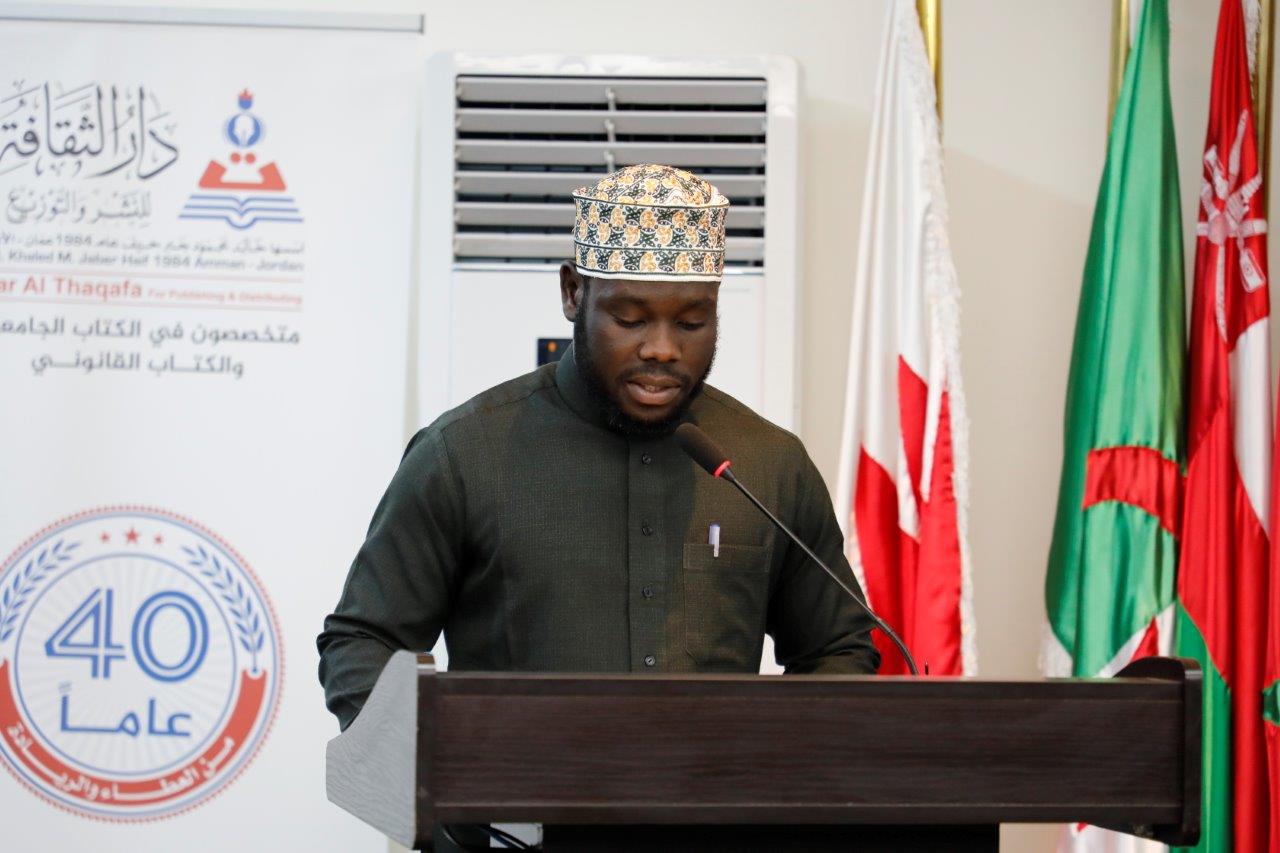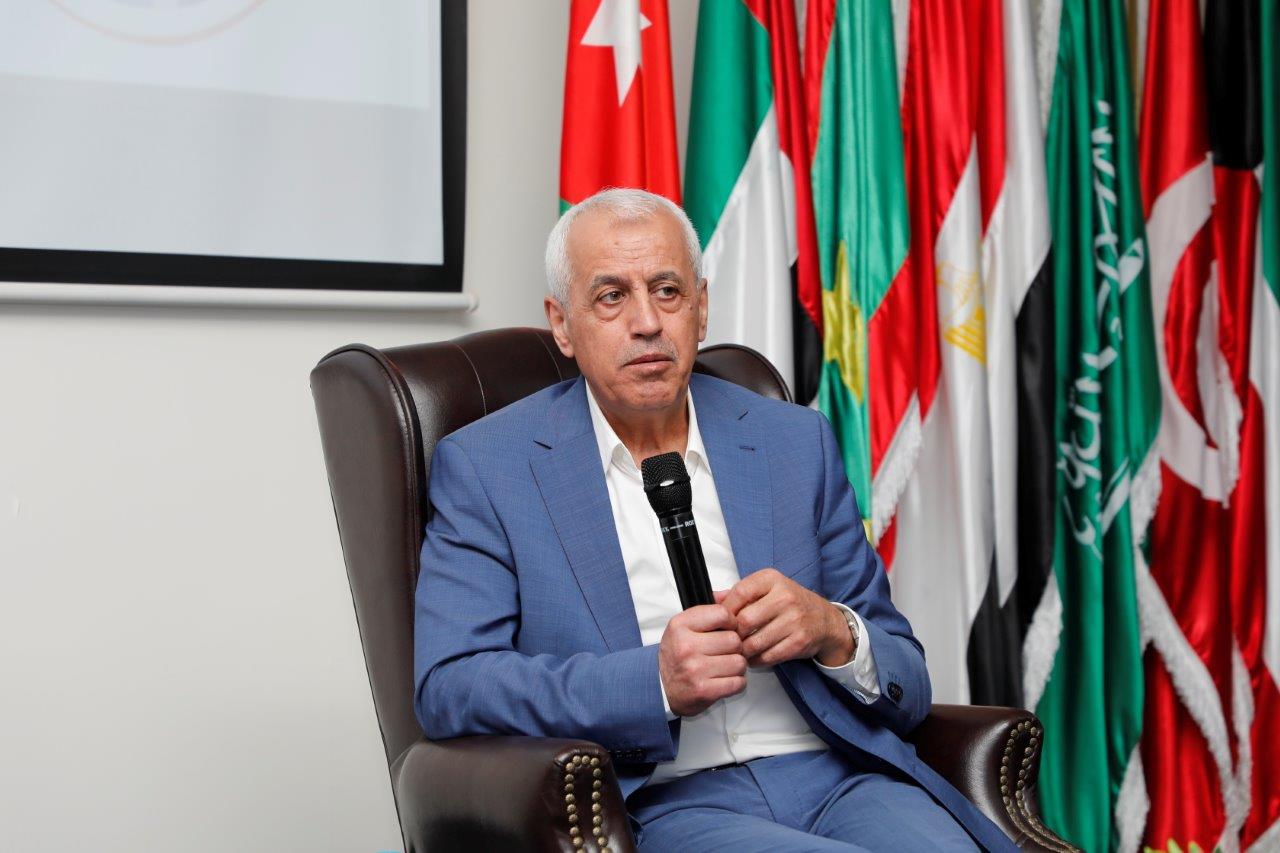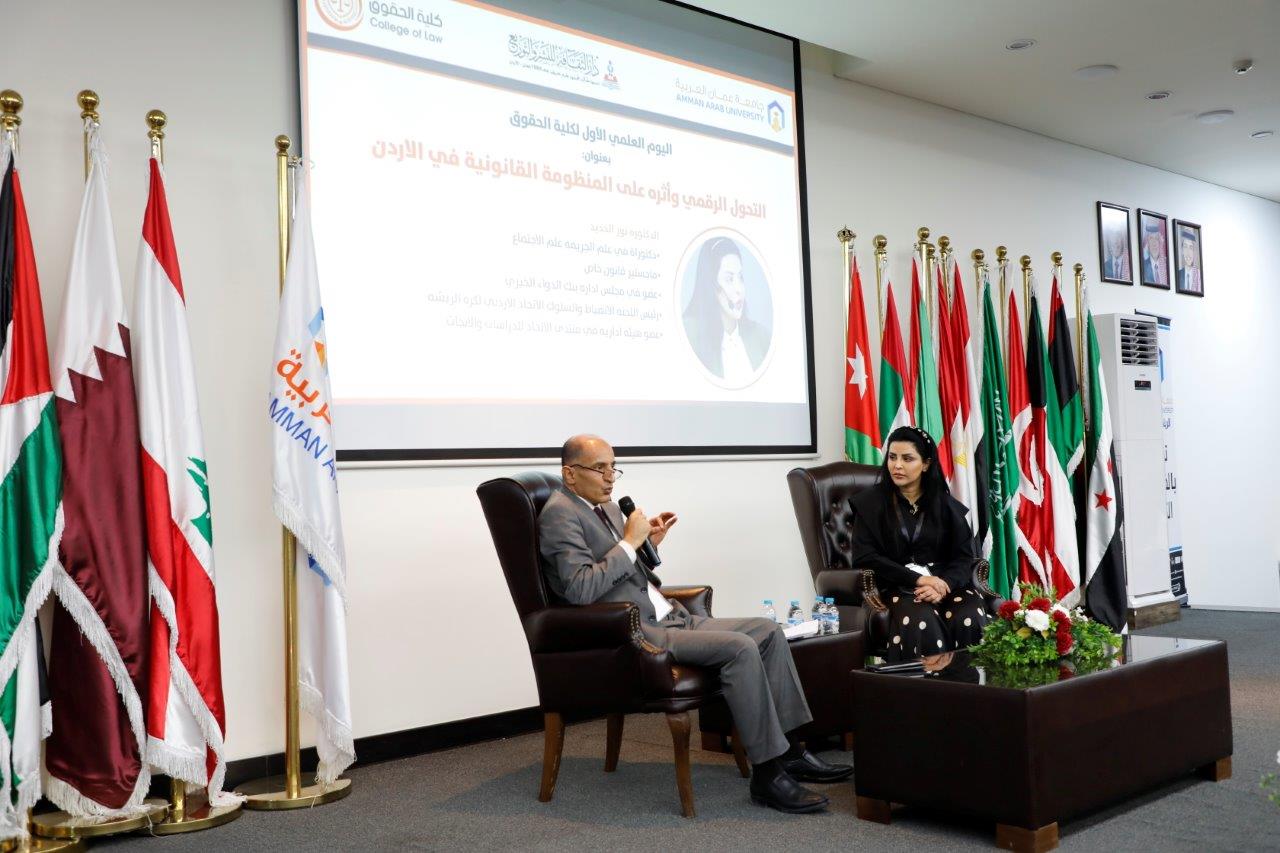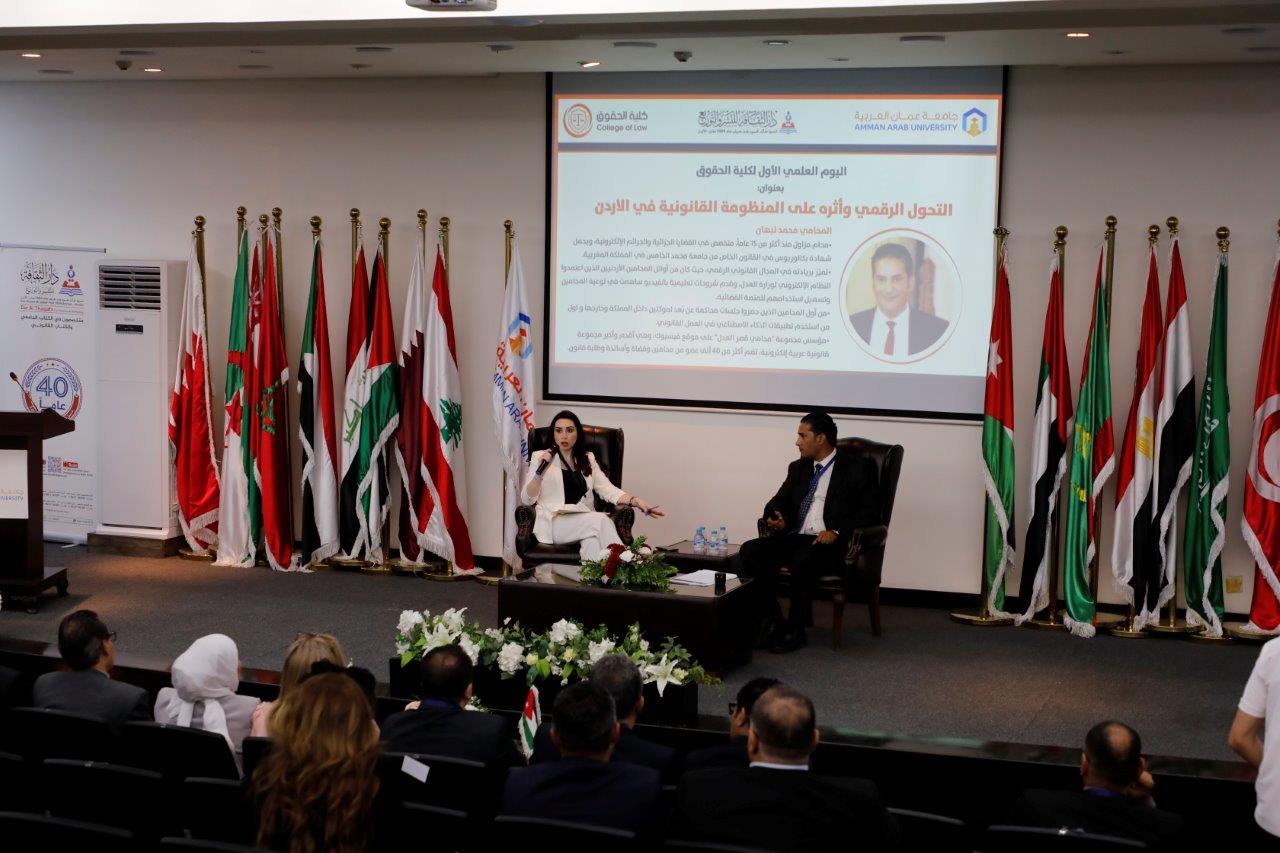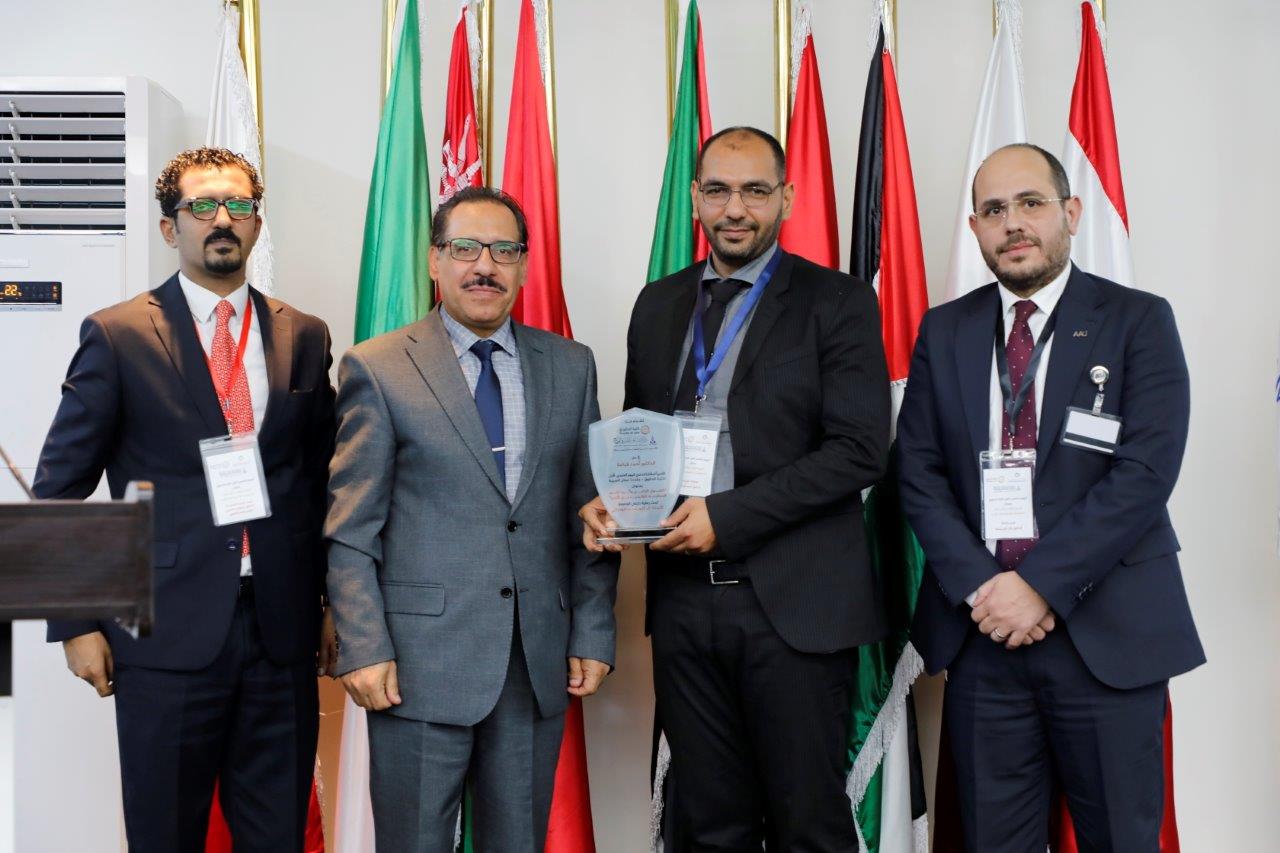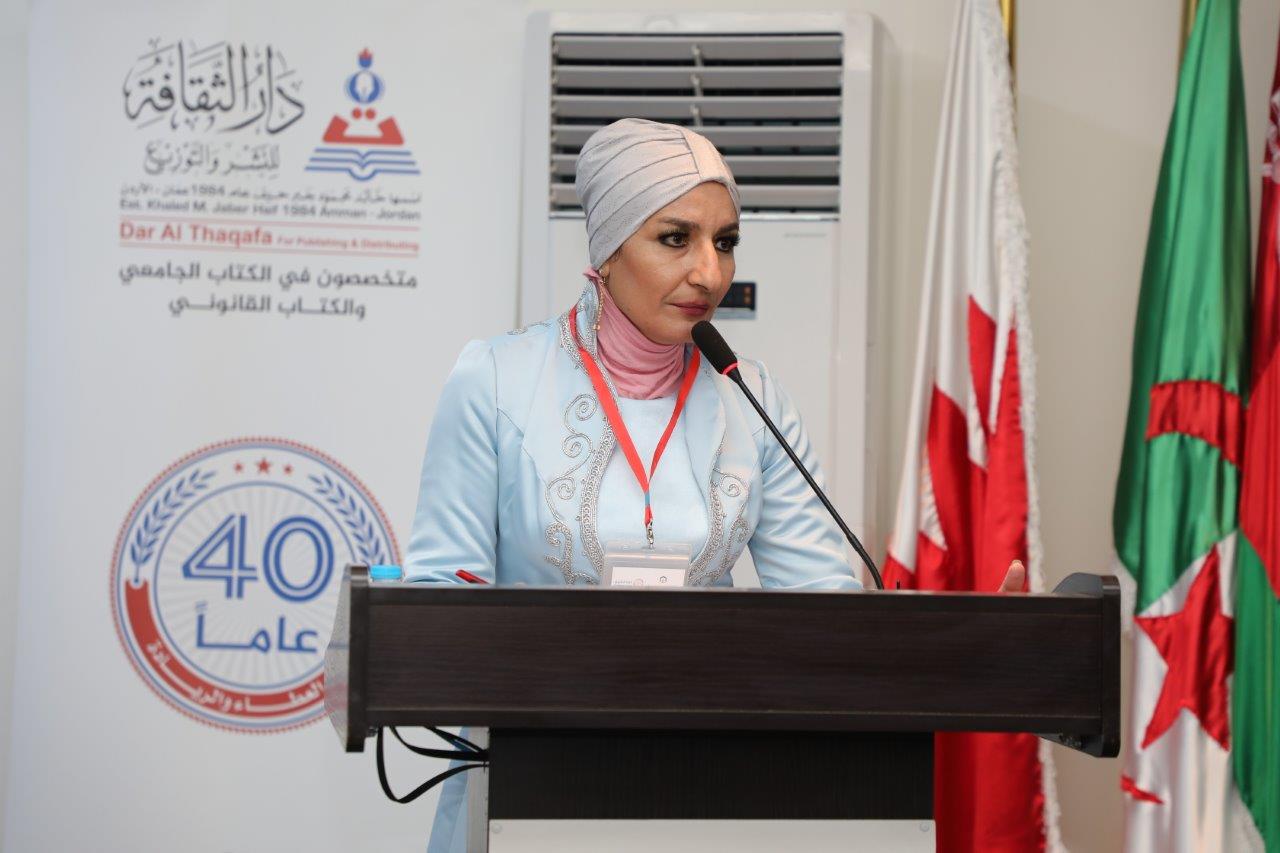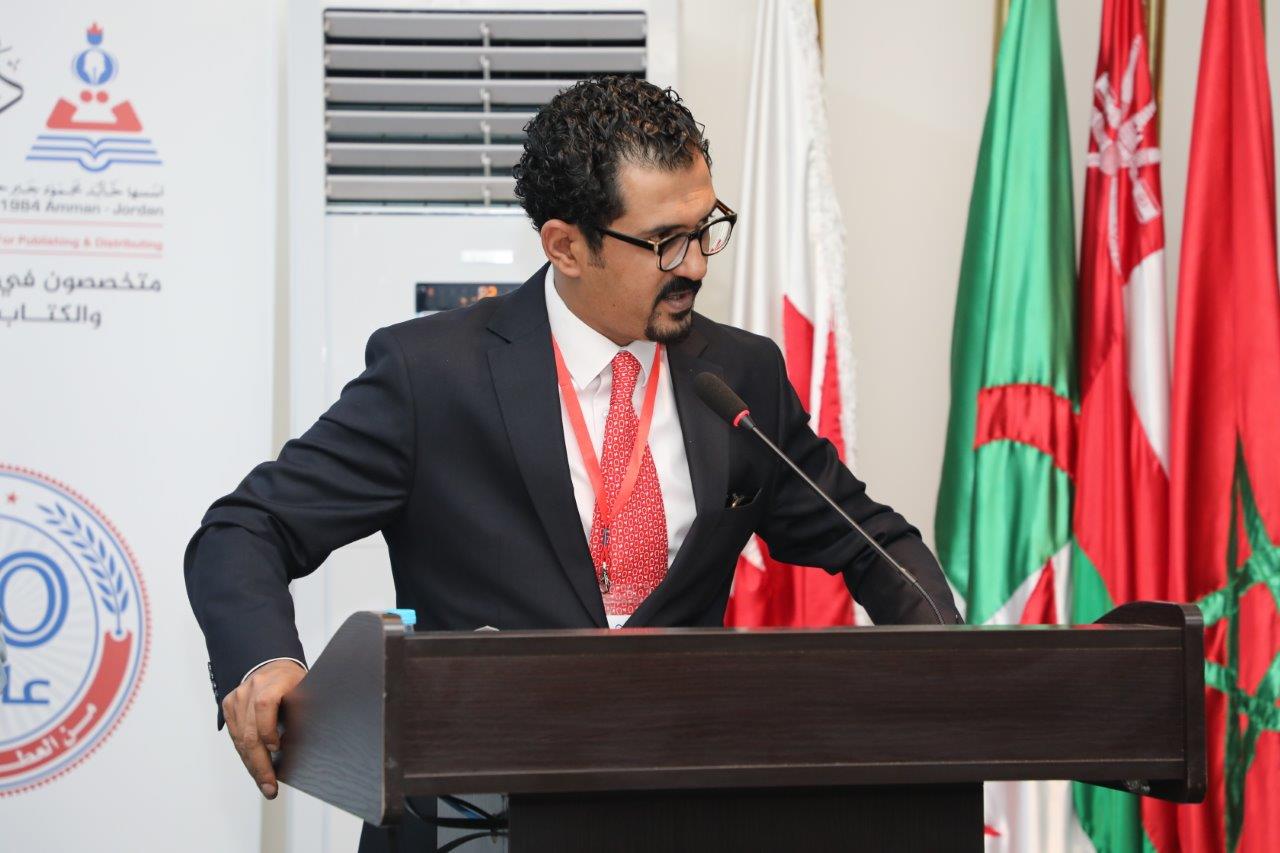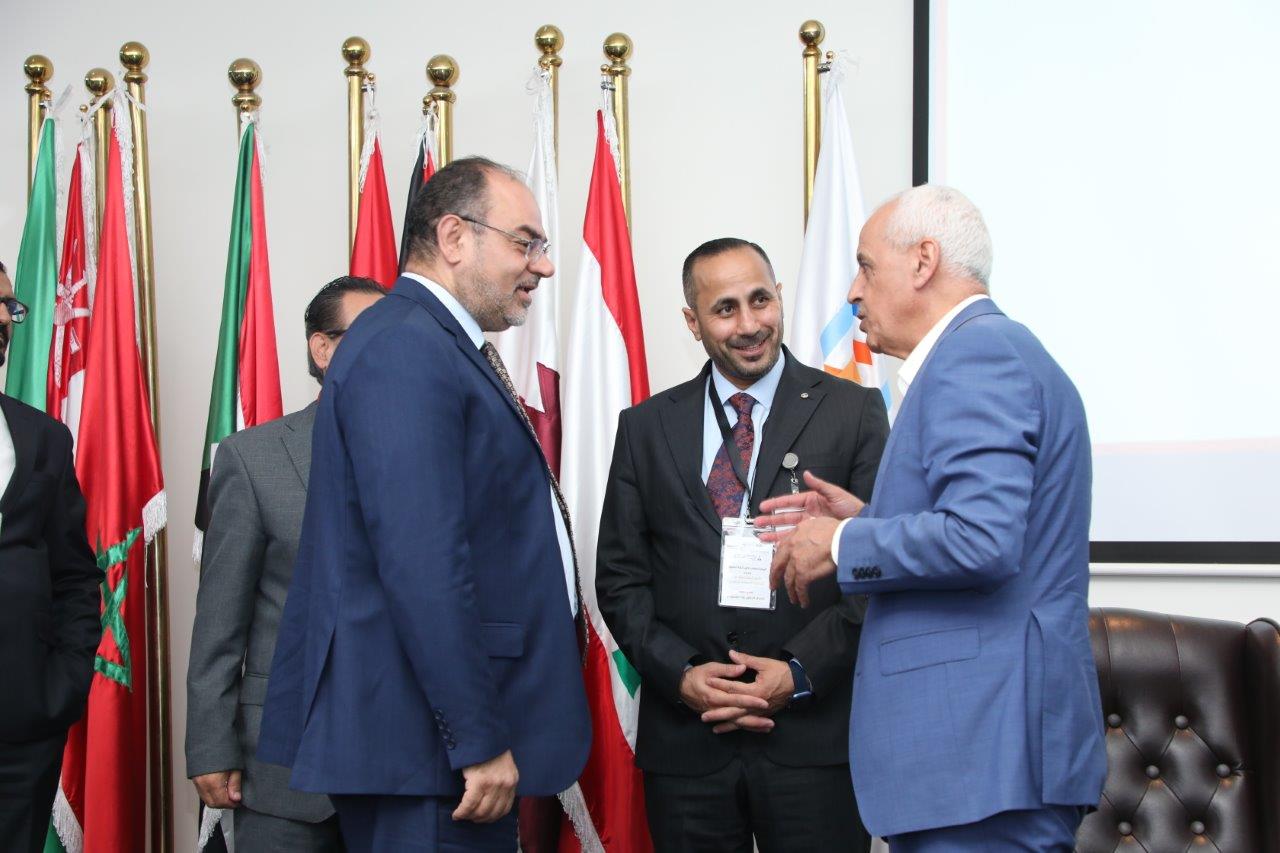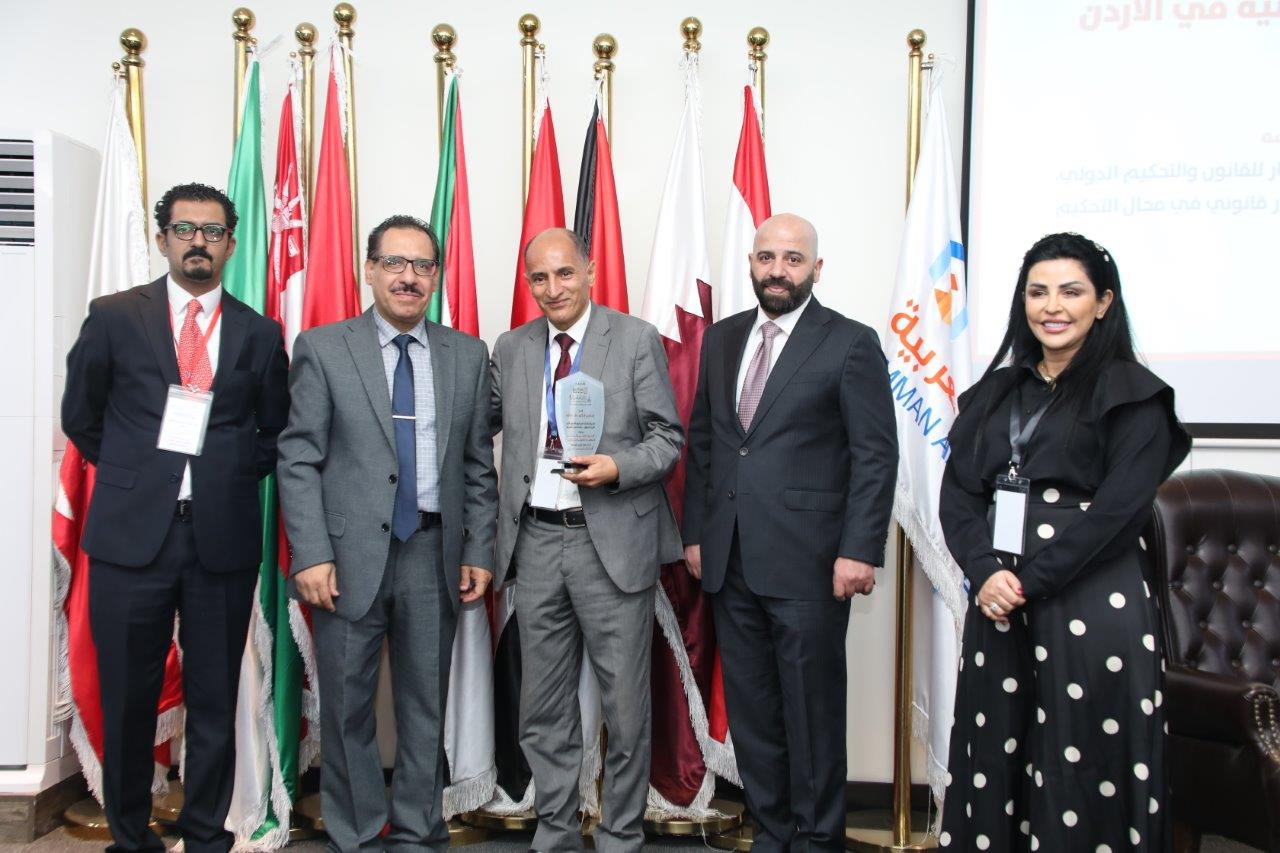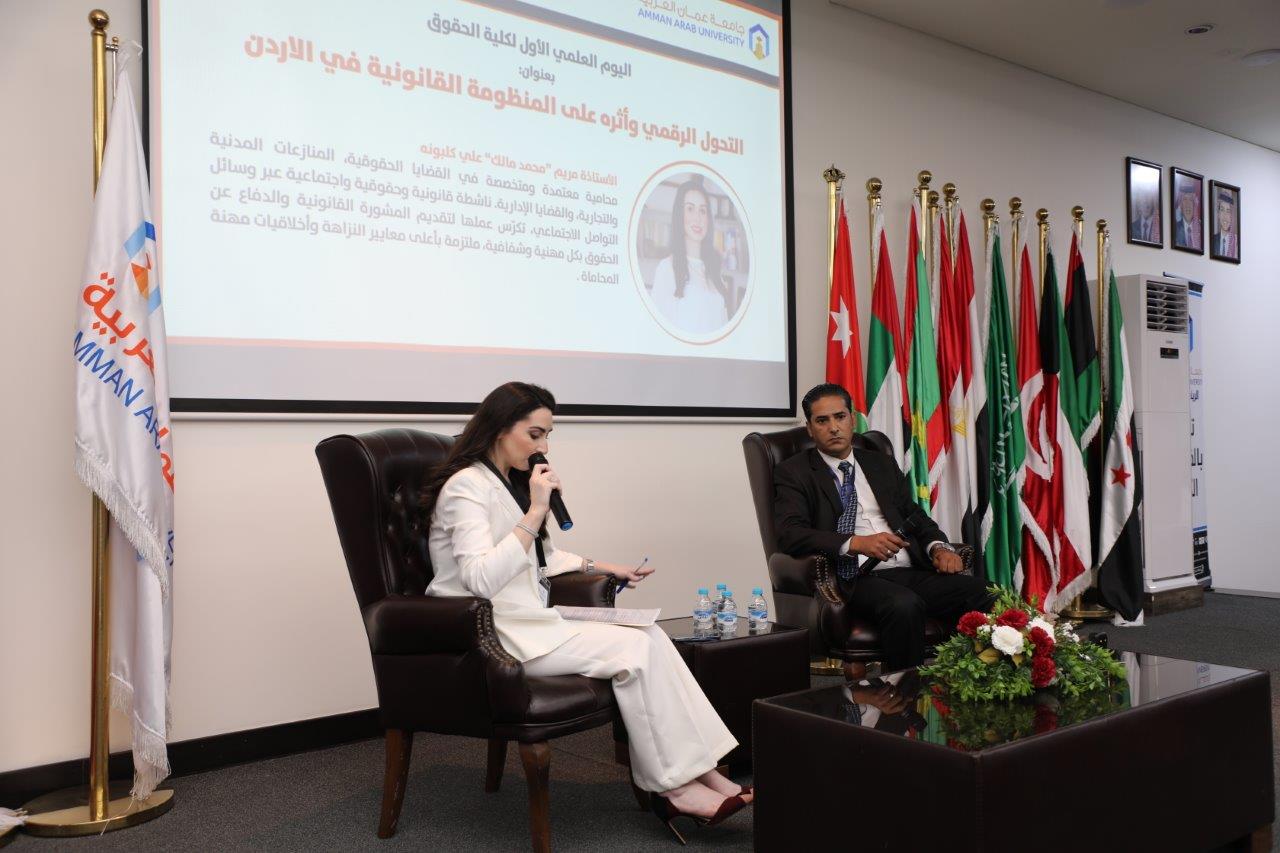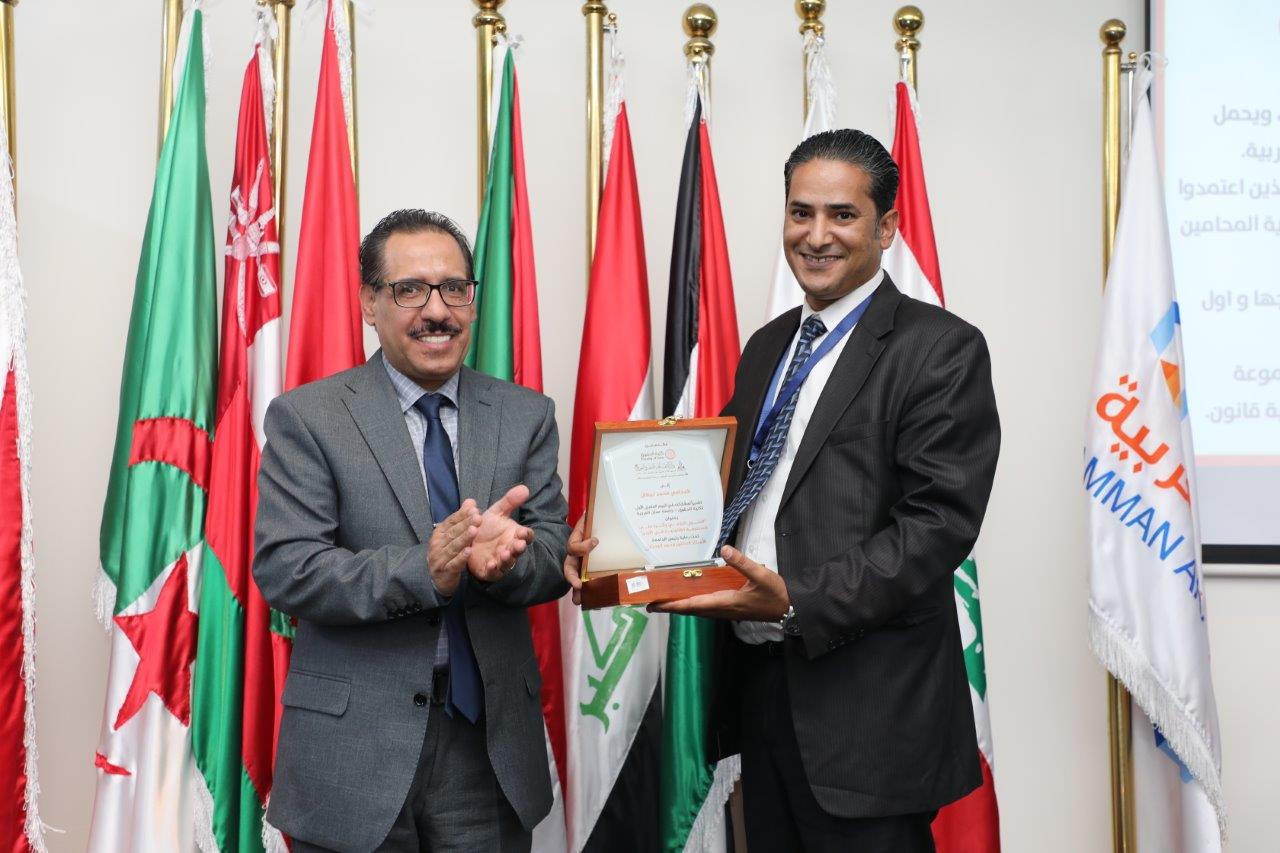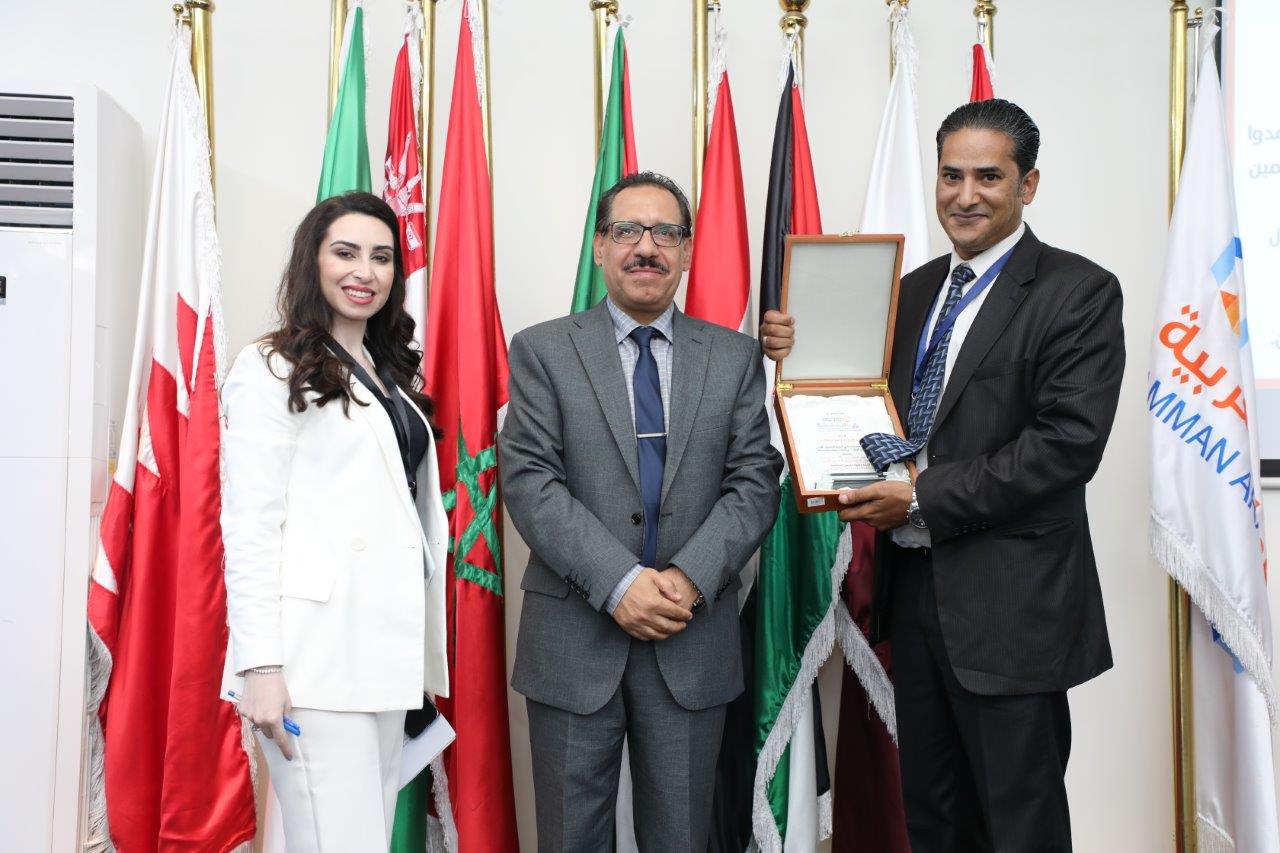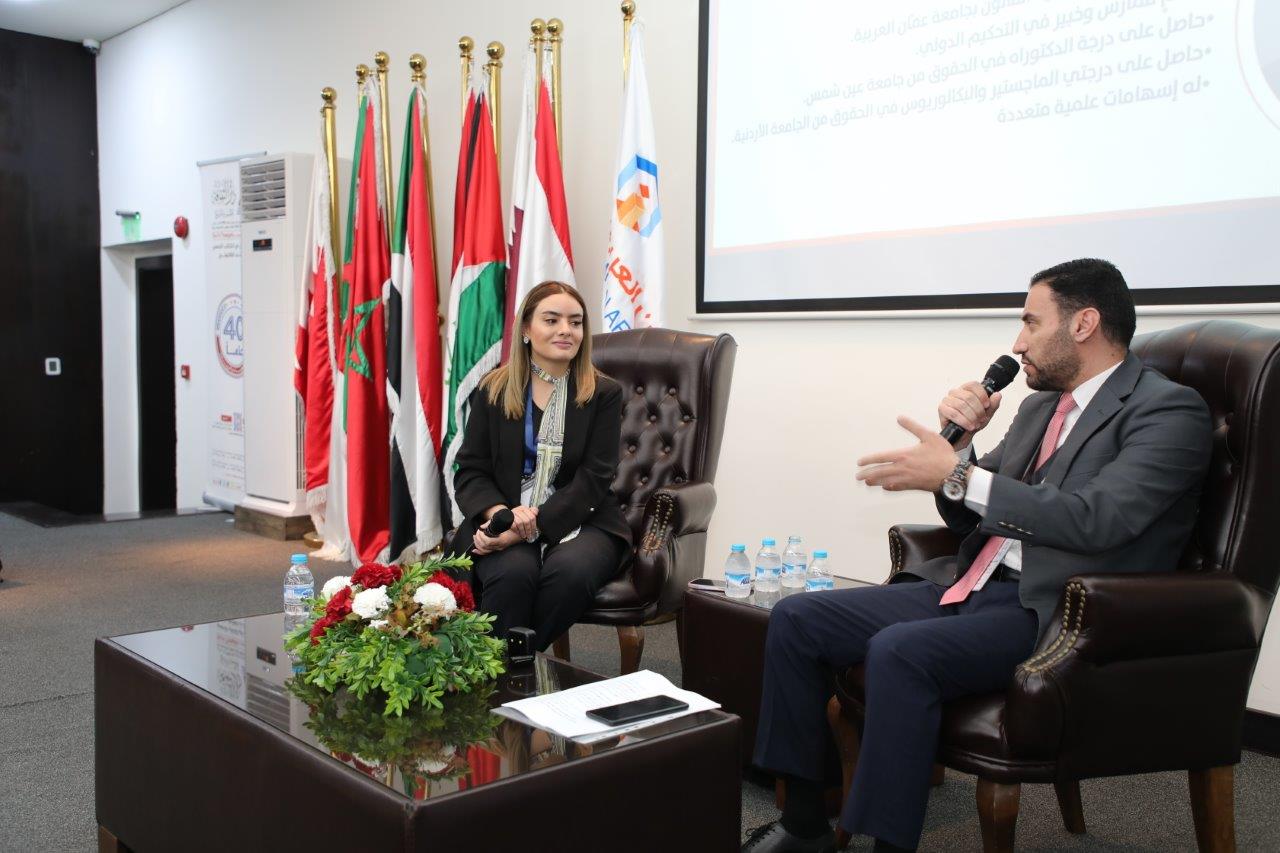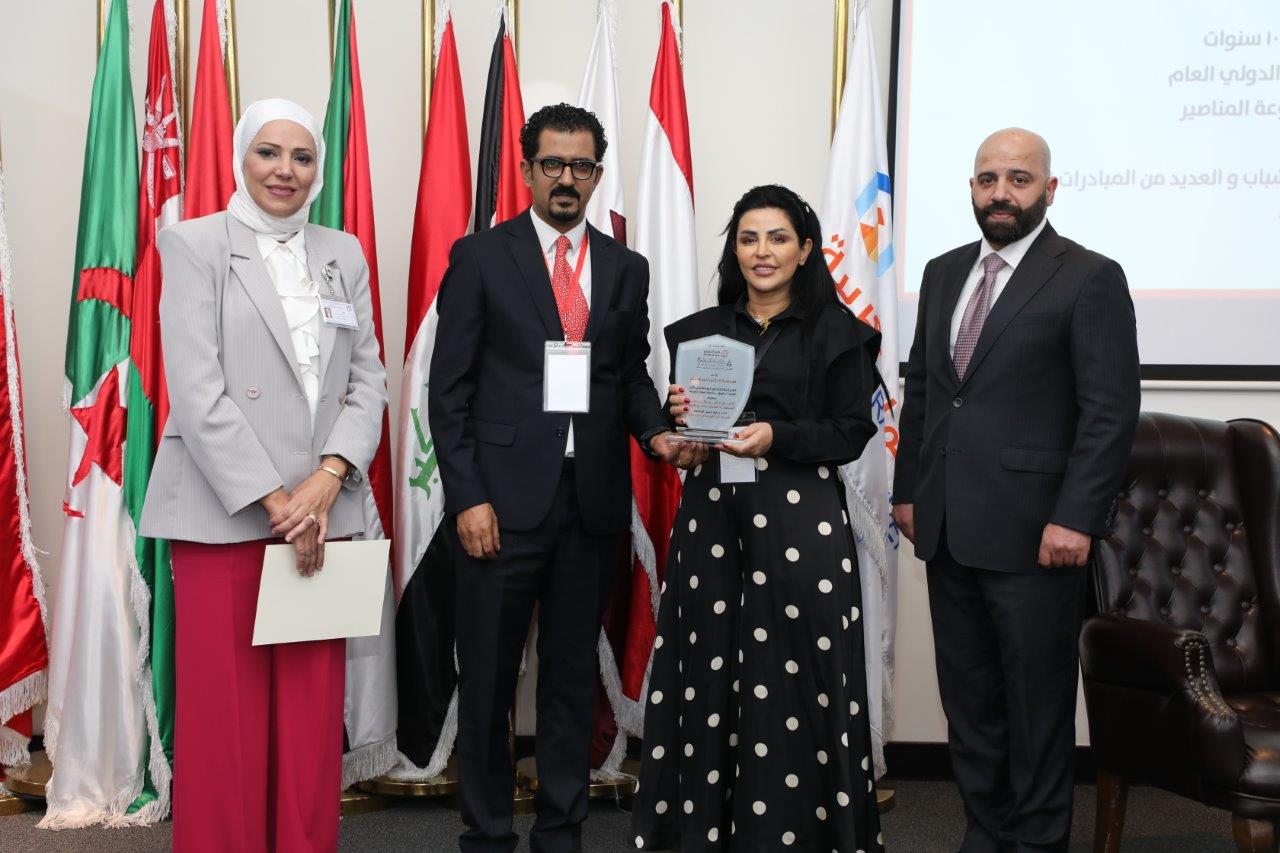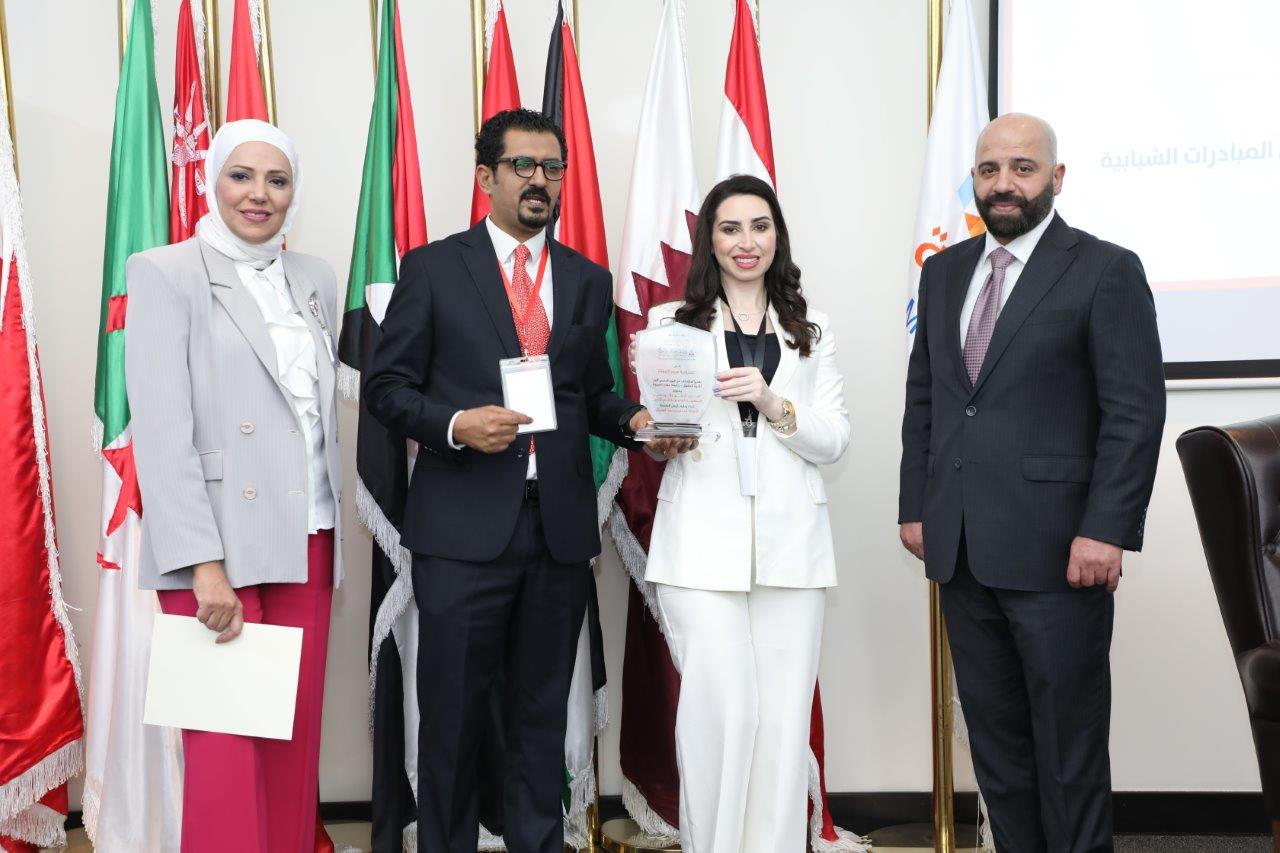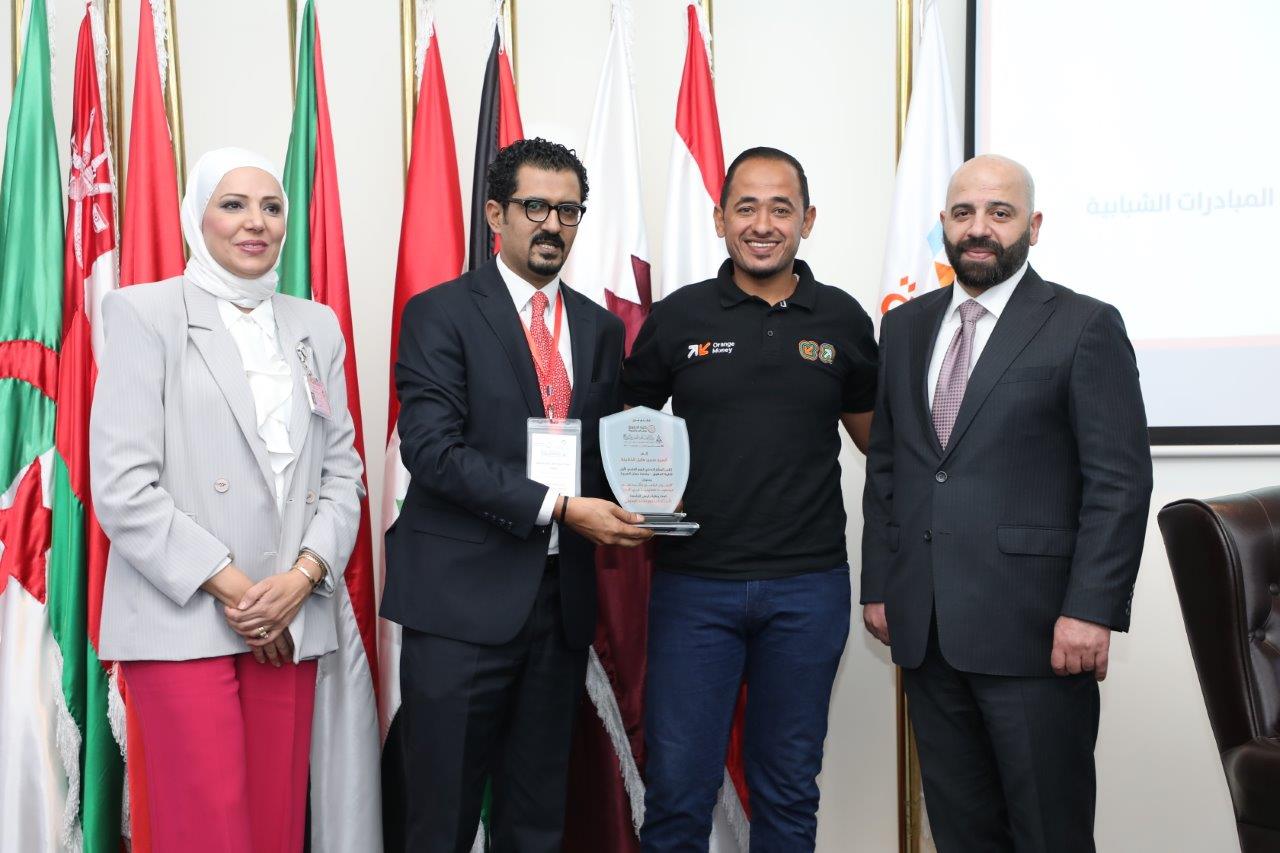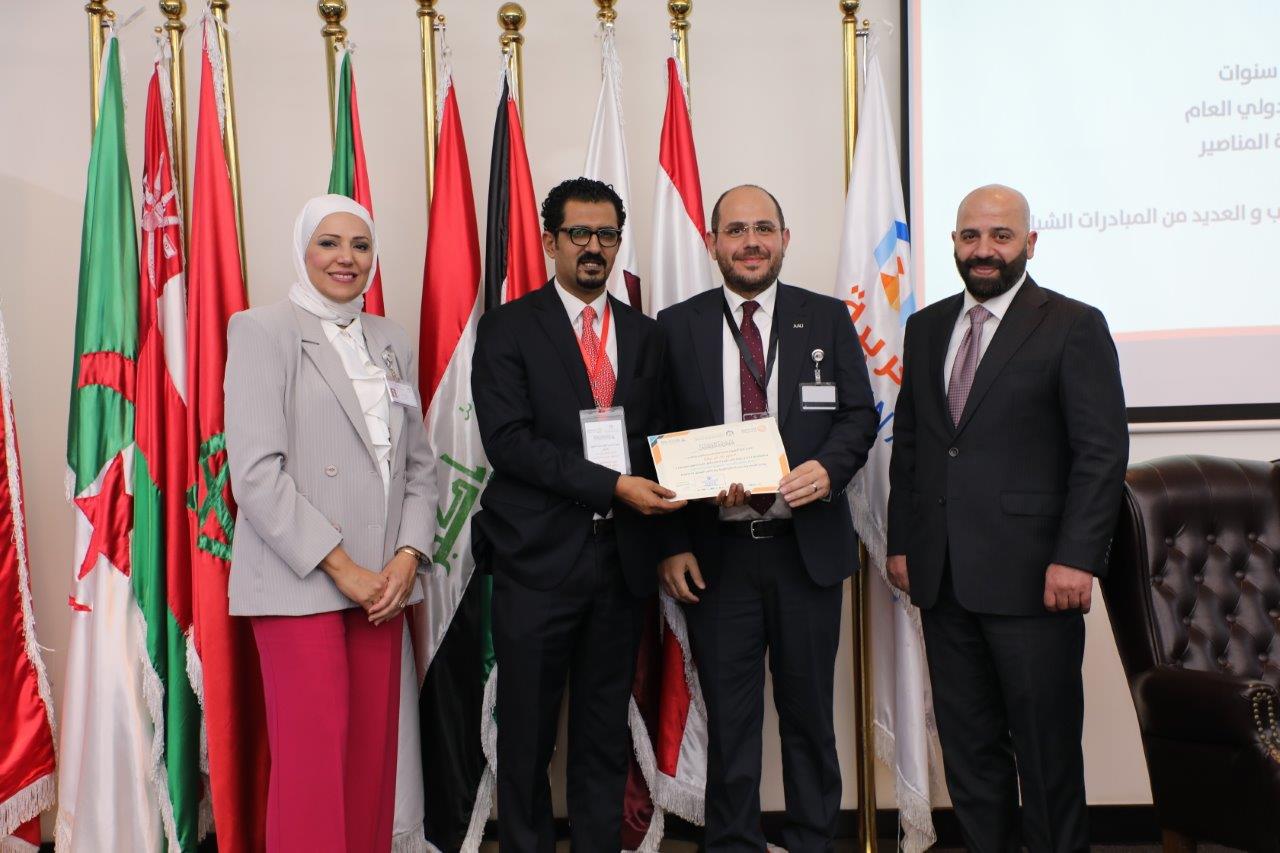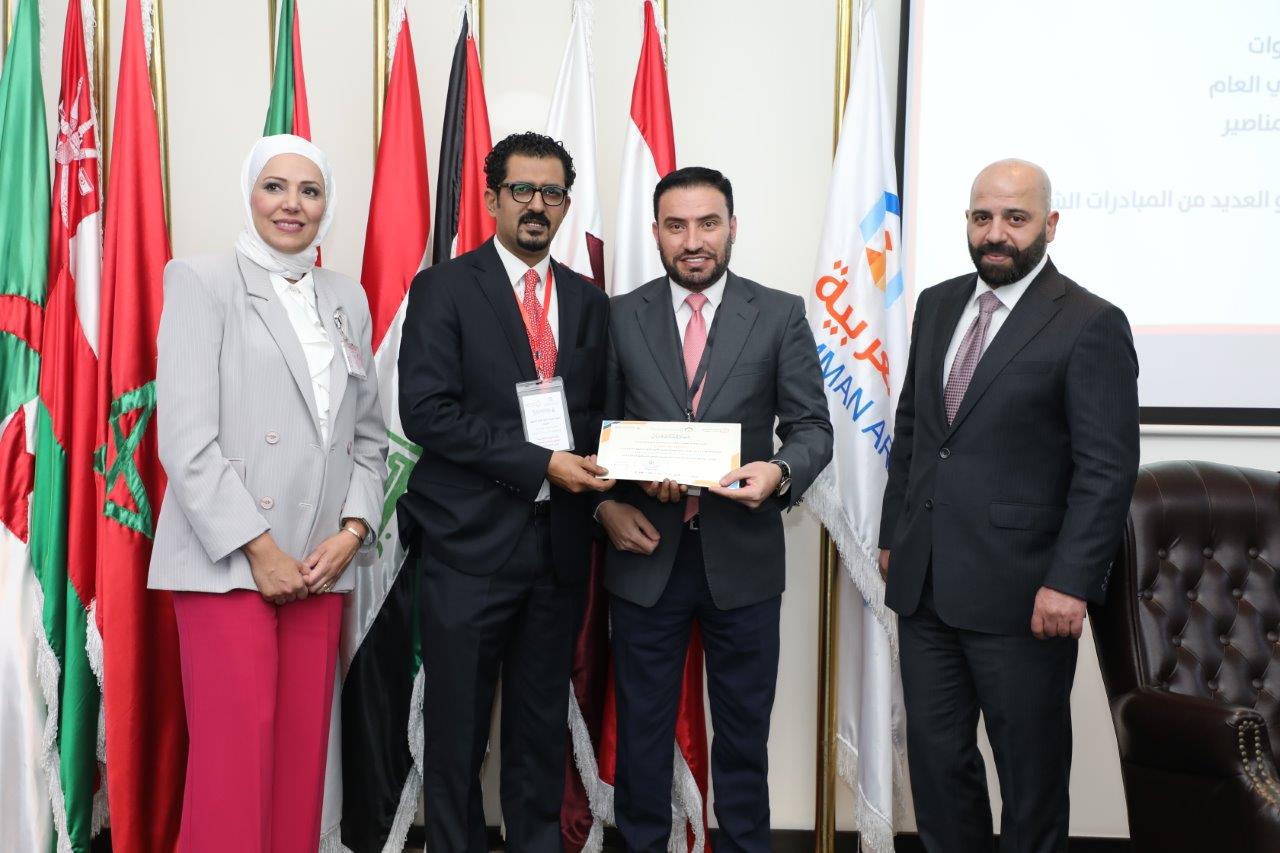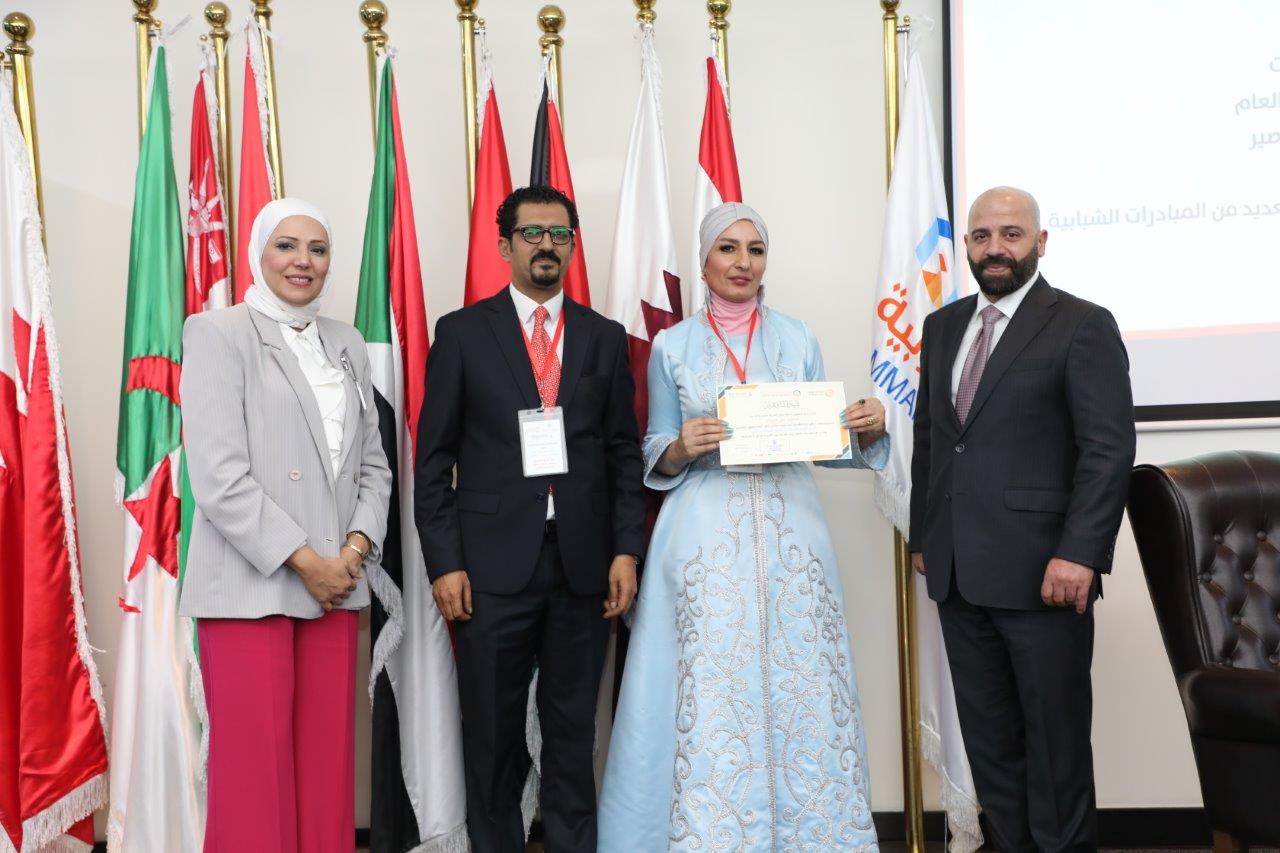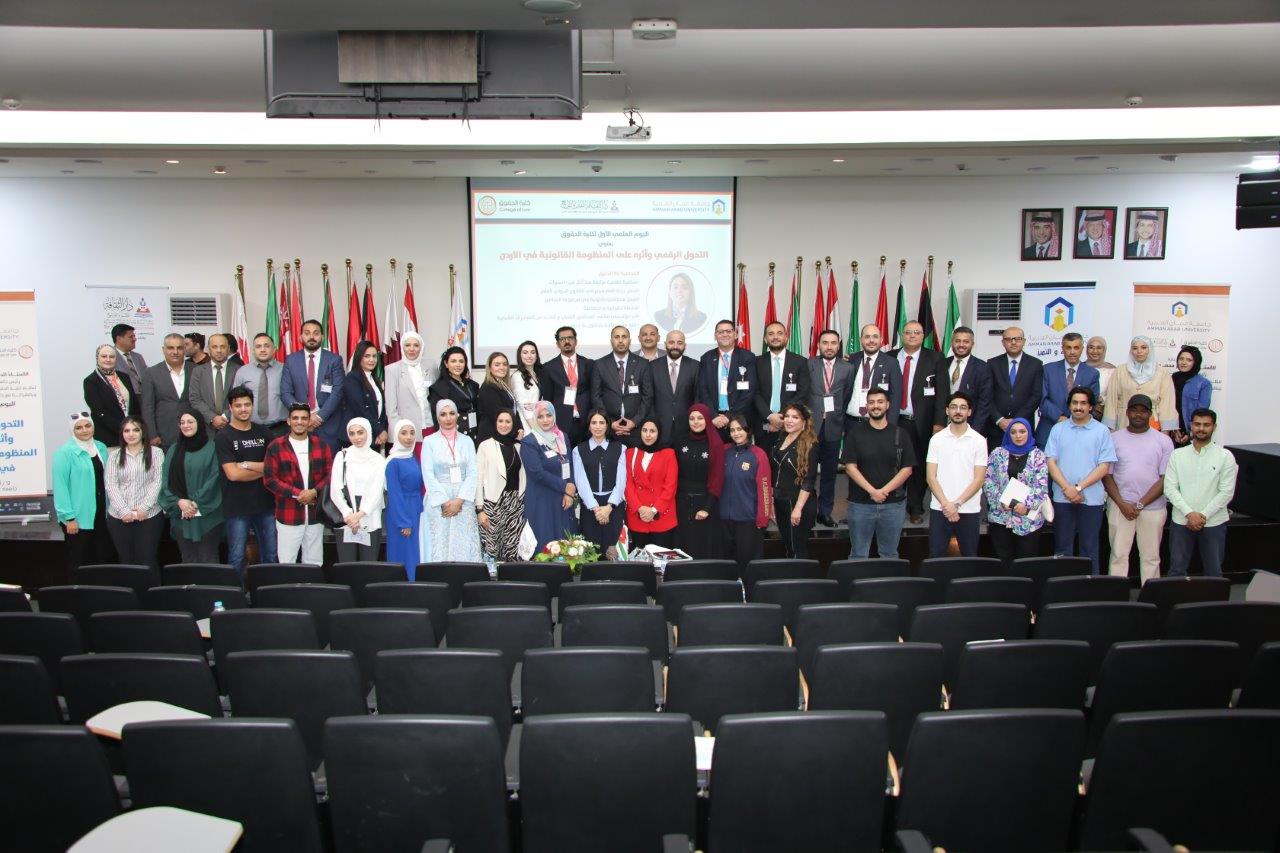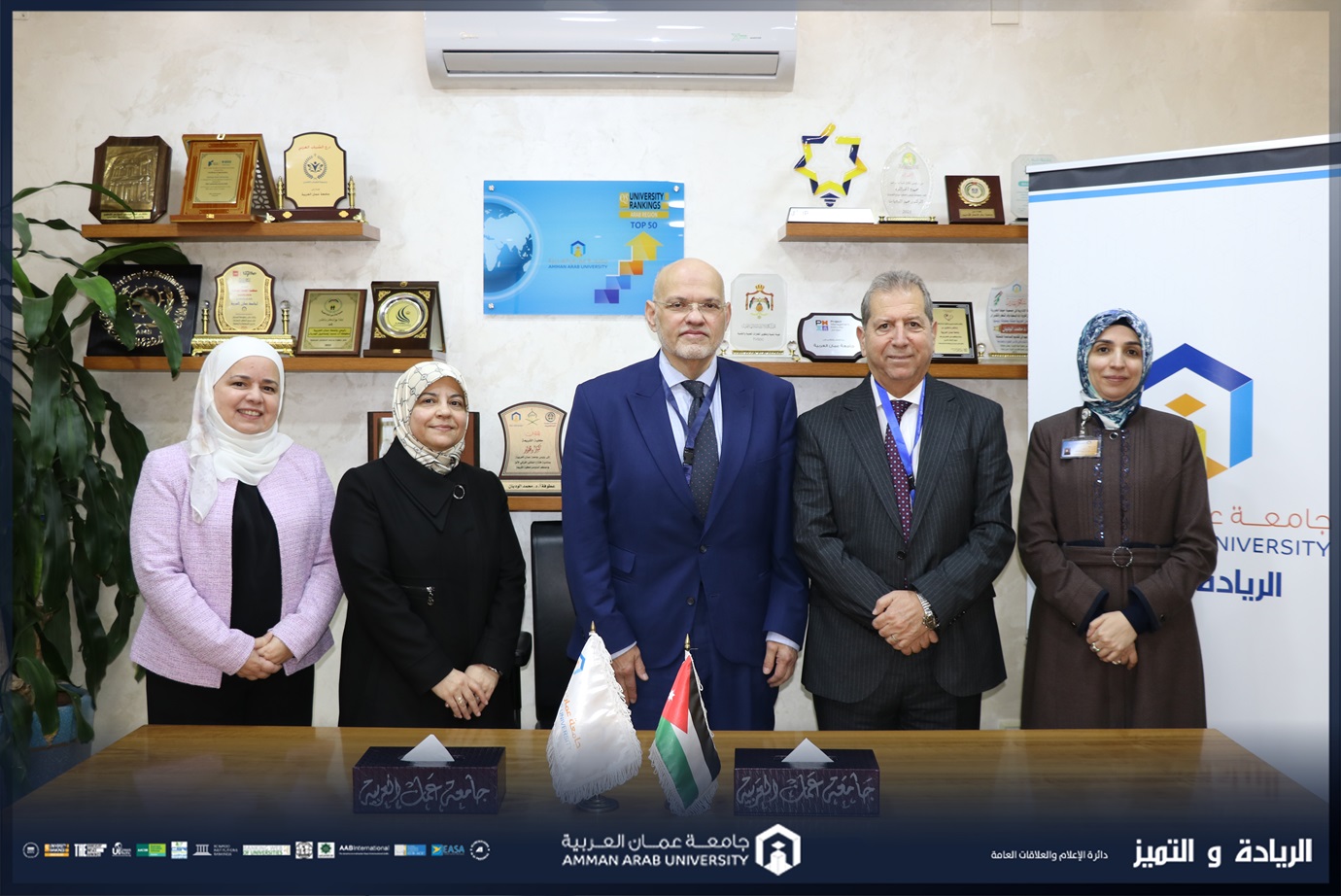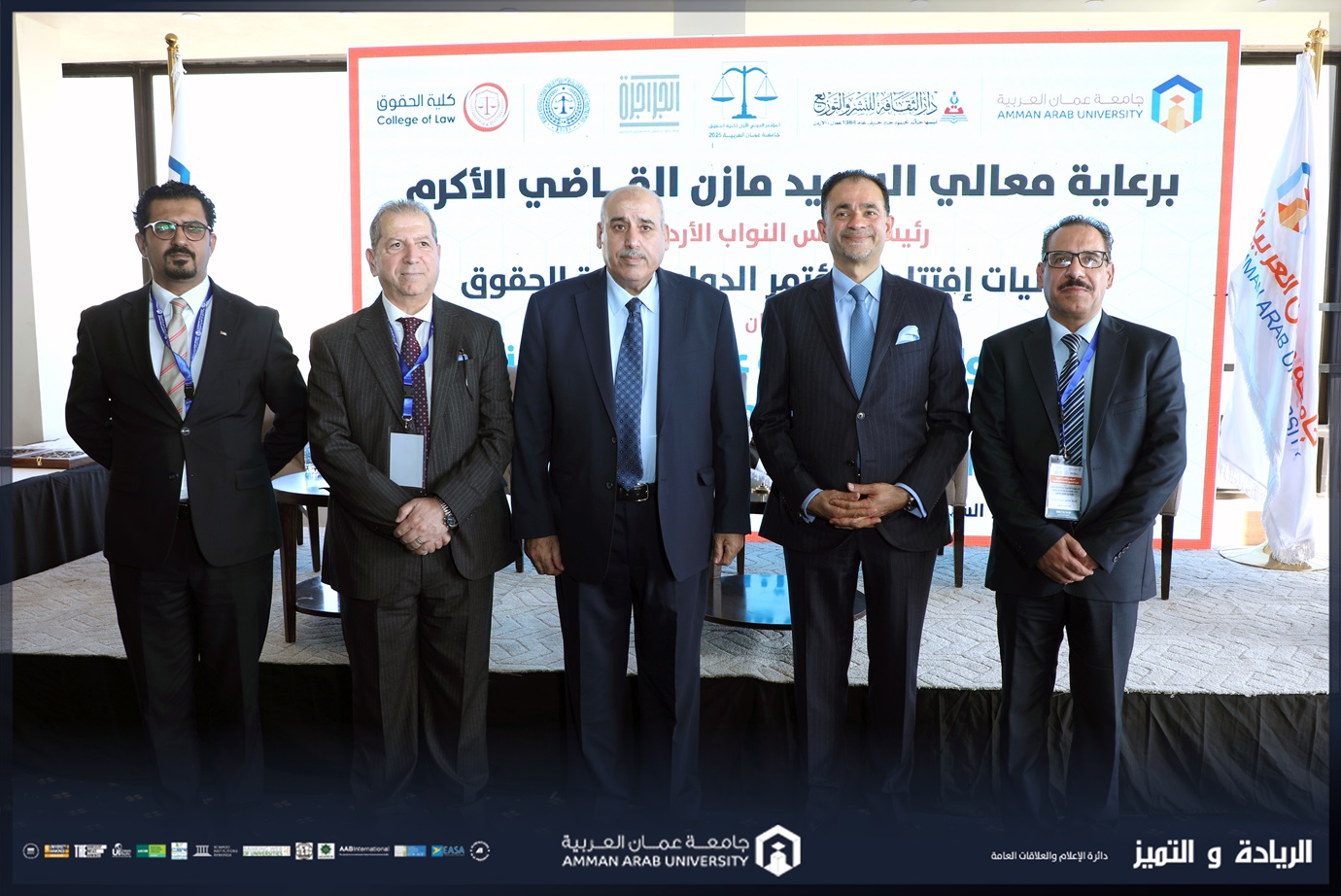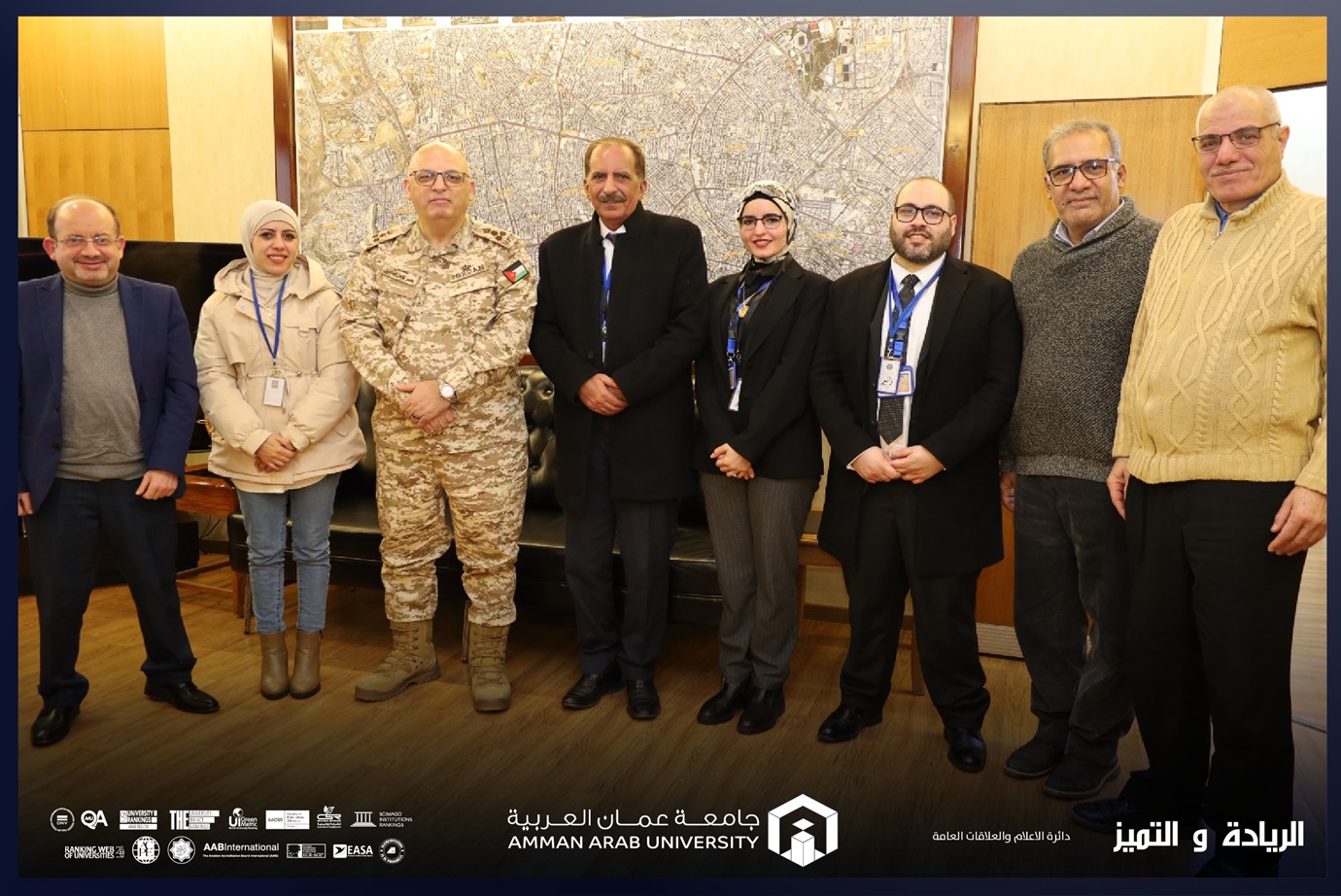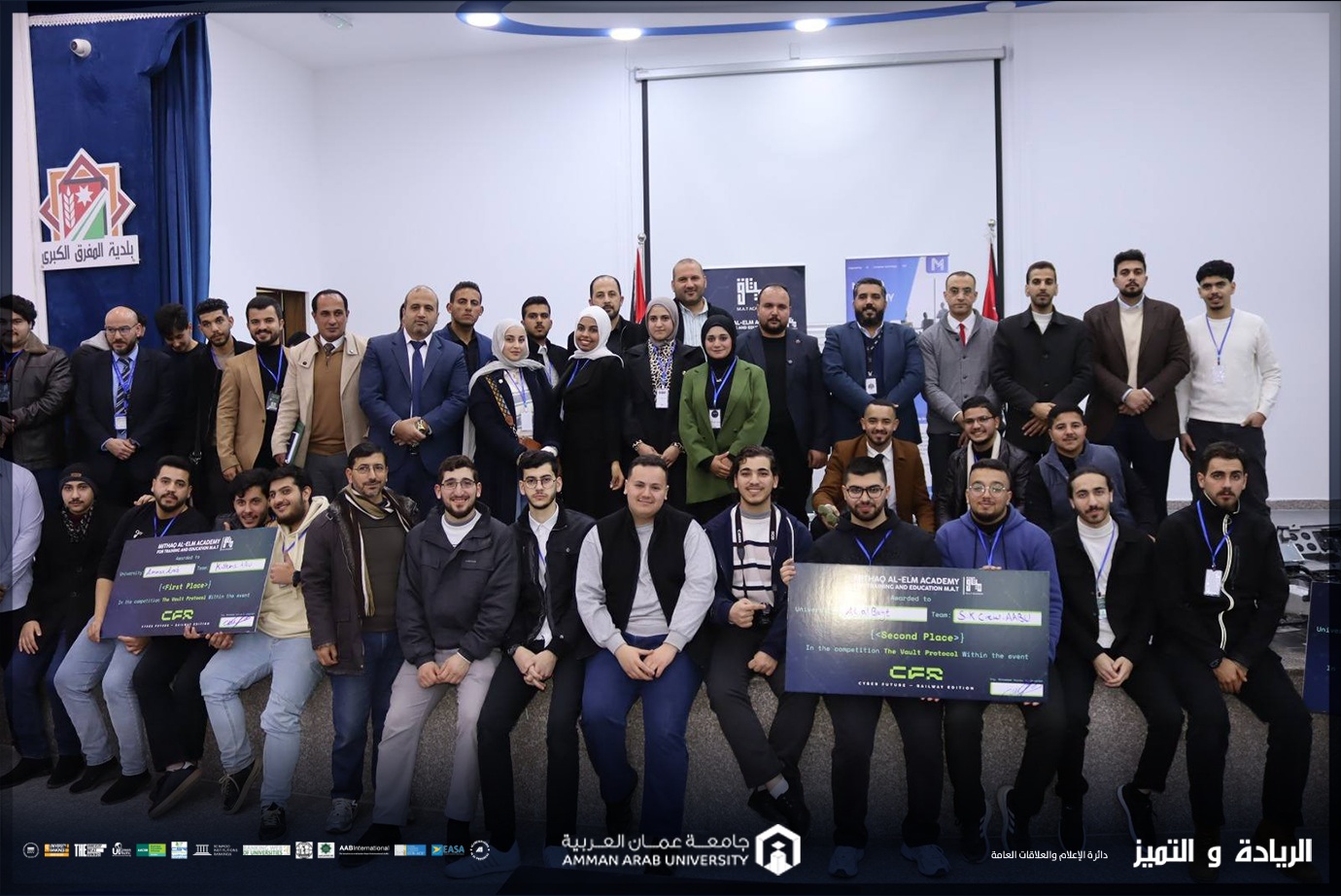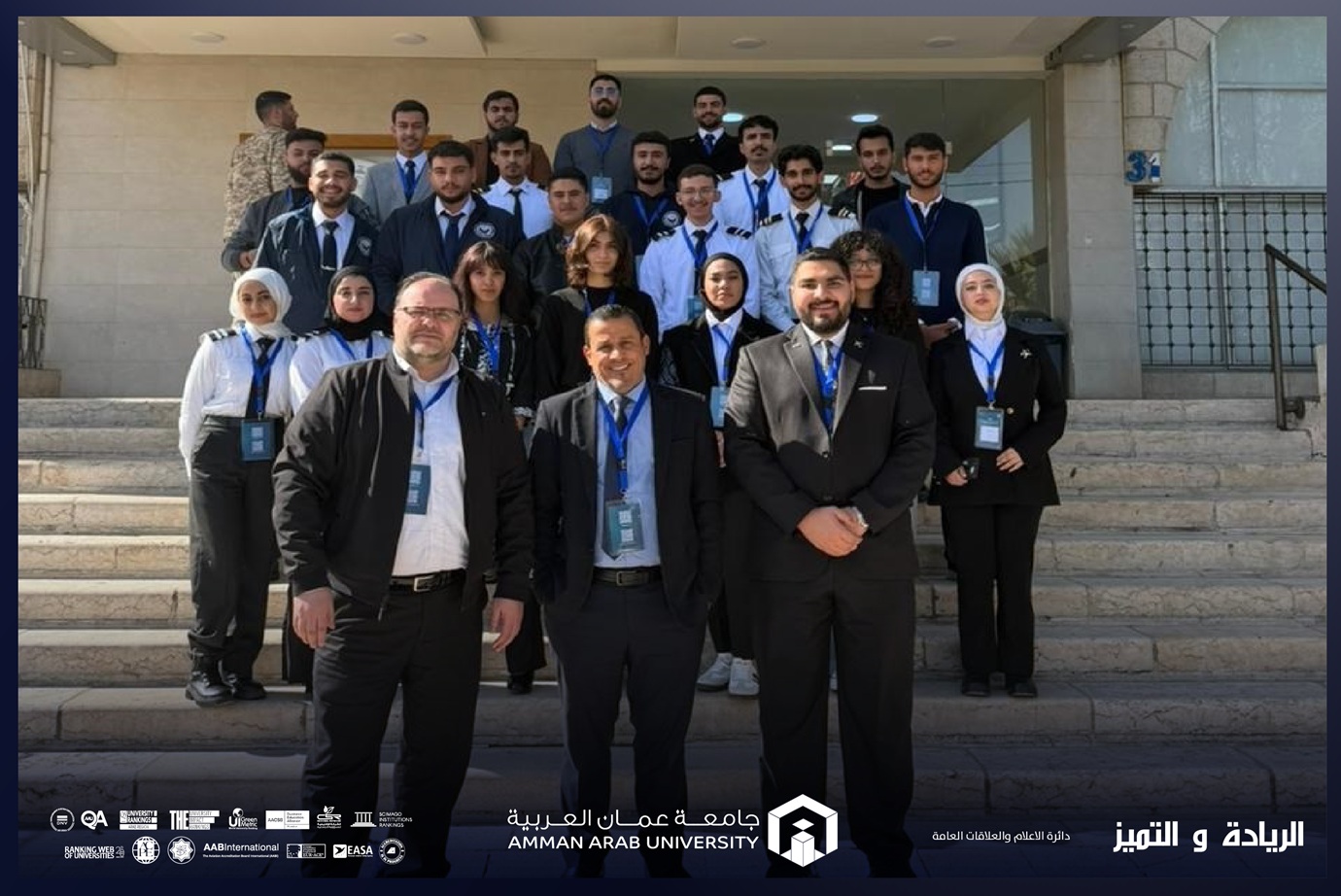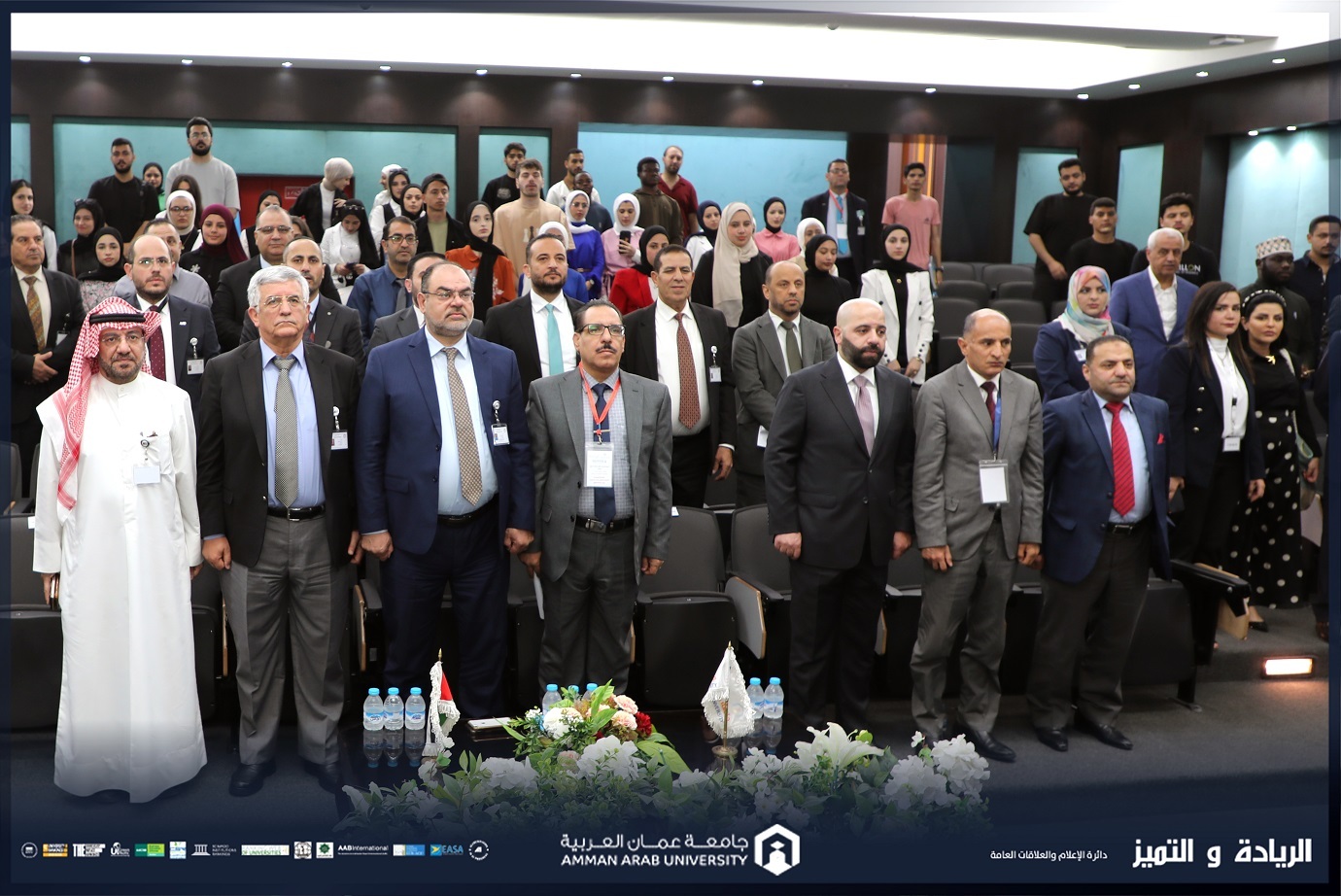
Faculty of Law at Amman Arab University Holds Its First Scientific Day on "Digital Transformation and Its Impact on the Legal System"
Under the patronage of Amman Arab University President Prof. Dr. Mohammad Al-Widyan, the Faculty of Law held its first Scientific Day titled "Digital Transformation and Its Impact on the Legal System." The event was attended by Prof. Dr. Ismail Yamin, Assistant President for Academic Affairs (representing the University President), Prof. Dr. Mohammad Althnaibat ,Dean of the Faculty of Law, along with several deans, faculty and administrative staff members, legal and academic figures, and law students.
In his opening remarks, Dr. Al-Thneibat emphasized that the Faculty of Law at Amman Arab University dedicates its academic and research capabilities to serving legislators, driven by its firm belief in universities' role in supporting and developing the legislative process. He added that digital transformation has become an undeniable reality, necessitating legal and regulatory adaptation to balance technological advancement with constitutional principles and individual rights.
Dr. Sultan Al-Atin, Head of the Law Department at Amman Arab University, highlighted the significance of the Scientific Day's theme, stressing that addressing digital transformation requires joint academic and legislative efforts. He also announced ongoing procedures to sign a memorandum of understanding with the Legal Committee of the House of Representatives to enhance legal research in legislative development through scientific studies and proposals aligned with the digital age.
The Scientific Day featured six specialized sessions discussing various legal, legislative, educational, and professional aspects of digital transformation. The first session, chaired by Prof. Dr. Alaa Al-Fawair (Faculty of Law), hosted Dr. Ahmad Al-Hayasat, Chairman of the National Cybersecurity Council, who presented Jordan's cybersecurity system and national strategies for protecting digital infrastructure and sensitive data.
The second session, titled "E-Legal Education: Reality and Aspirations," was moderated by Dr. Bilal Abu Eisha (Faculty of Law) and addressed digital education tools and challenges. Dr. Ahmad Qabaa from the University of Jordan emphasized balancing e-learning and in-person education to maintain academic quality in legal studies.
The third session, "Digital Transformation in the Judiciary," was led by Dr. Murad Al-Qaddah (Faculty of Law) with lawyer Tala Al-Haleeq, discussing e-judiciary developments in Jordan and the need for technical legislative frameworks to protect judicial confidentiality.
The fourth session, moderated by Dr. Mohammad Al-Shahin (Faculty of Law), explored "The State, Individuals, and Education in the Digital Age." Prof. Dr. Laith Nasrawin, Dean of the Faculty of Law at Al-Zaytoonah University, provided a constitutional analysis of digitization's impact on public rights, cautioning against limiting the constitutional right to education to digital means alone.
The fifth session, chaired by lawyer Mariam Kalbouneh, examined "Digital Transformation's Impact on the Legal Profession," featuring lawyer Mohammad Al-Nabhan, who reviewed e-judicial system developments since 2005 and underscored infrastructure challenges and legislative updates. The final session, "Judiciary and Digital Transformation: Between Development and Protection," was moderated by lawyer Dr. Nour Al-Haded with Judge Dr. Khaled Akasha, focusing on remote trials, e-records, and e-detention while emphasizing judicial privacy and personal data protection.
The event concluded with key recommendations, including updating national legislation for the digital era, qualifying legal professionals for digital challenges, and strengthening academic-legislative partnerships to achieve digital justice while upholding constitutional principles. Participants were honored with commemorative shields and certificates in recognition of their contributions to the event’s success.



